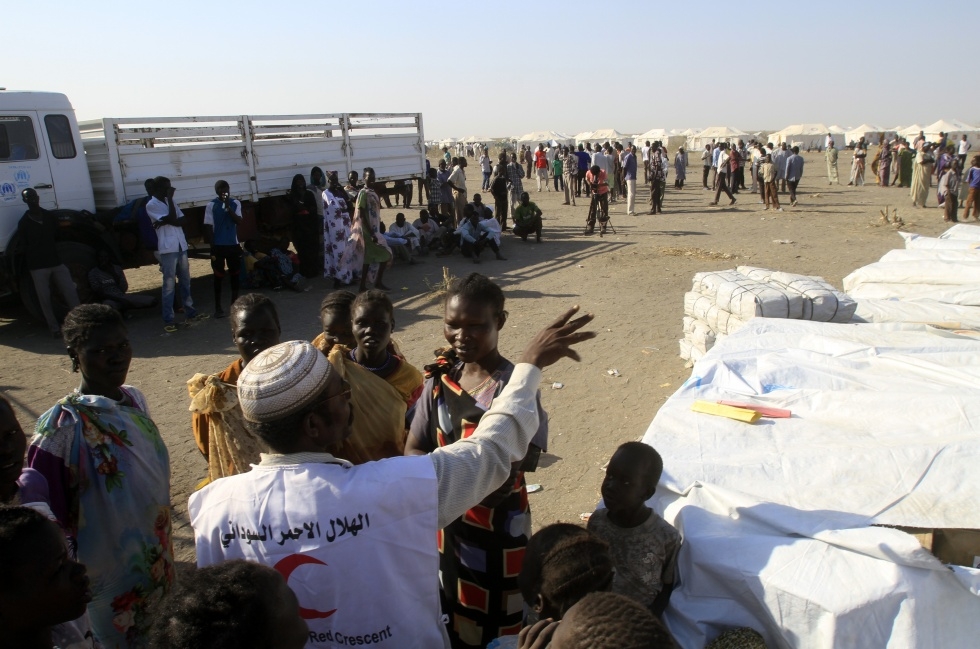Sudan receives thousands of refugees from south of border
Around 64,000 Southern Sudanese find refuge in former foe Sudan as MSF slams UN ‘indifference’

South Sudanese refugees wait for aid at a camp run by Sudanese Red Crescent (AFP)
Published date: 12 February 2015 08:30 GMT
|
Last update: 9 years 9 months ago
Around 64,000 South Sudanese have fled the violence in their country since mid-December to neighboring Sudan, the UN Office for the Coordination of Humanitarian Affairs in Sudan (OCHA) said on Sunday.
In a weekly report, OCHA said the White Nile State receives around 150 South Sudanese refugees every day.
It added that many refugees also continue to flock to Sudan's South Kordofan State.
South Sudan has been shaken by violence since last December, when President Salva Kiir accused sacked vice-president Riek Machar of attempting to overthrow his regime.
The conflict has already claimed more than 10,000 lives, with the UN estimating that around one million have been displaced by the violence.
New MEE newsletter: Jerusalem Dispatch
Sign up to get the latest insights and analysis on Israel-Palestine, alongside Turkey Unpacked and other MEE newsletters
Medecins Sans Frontieres (Doctors Without Borders, MSF) said UN officials had left terrified civilians sheltering in a flood-prone part of a UN base "exposed to waterborne diseases and potential epidemics", even while acknowledging the camp was a "death trap".
"In a shocking display of indifference, senior United Nations Mission in South Sudan (UNMISS) officials have refused to improve living conditions for 21,000 displaced people," MSF said.
"The UNMISS decision not to improve conditions in Tomping is shameful," added MSF's emergency coordinator Carolina Lopez, referring to the UN base in South Sudan's capital Juba were thousands have sought refuge from a wave of ethnic violence.
"If nothing is done right now, the consequences, already horrific, could become fatal," she said, as the onset of the rainy season has seen bases flooded, latrines collapse and appalling public health conditions.
UNMISS responded with a statement asserting that it was doing its best, and "well aware of the risks to civilians who have crammed into its bases, none of which were designed to cater for IDPS, let alone in such huge numbers".
The war has since spread across the world's newest nation, with thousands seeking UN protection from ethnic massacres by security forces from Kiir's Dinka tribe or rebels from Machar's Nuer people.
Middle East Eye delivers independent and unrivalled coverage and analysis of the Middle East, North Africa and beyond. To learn more about republishing this content and the associated fees, please fill out this form. More about MEE can be found here.

